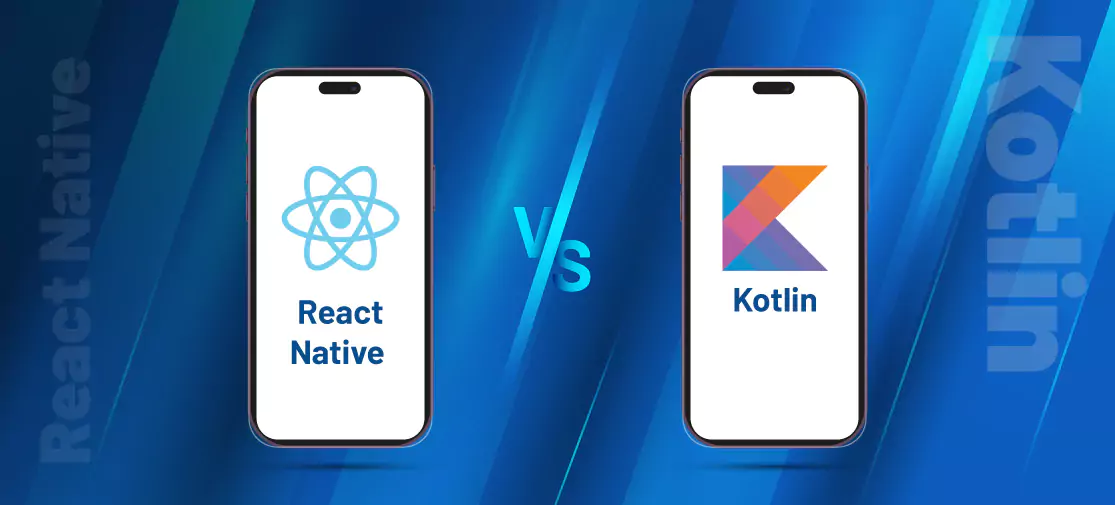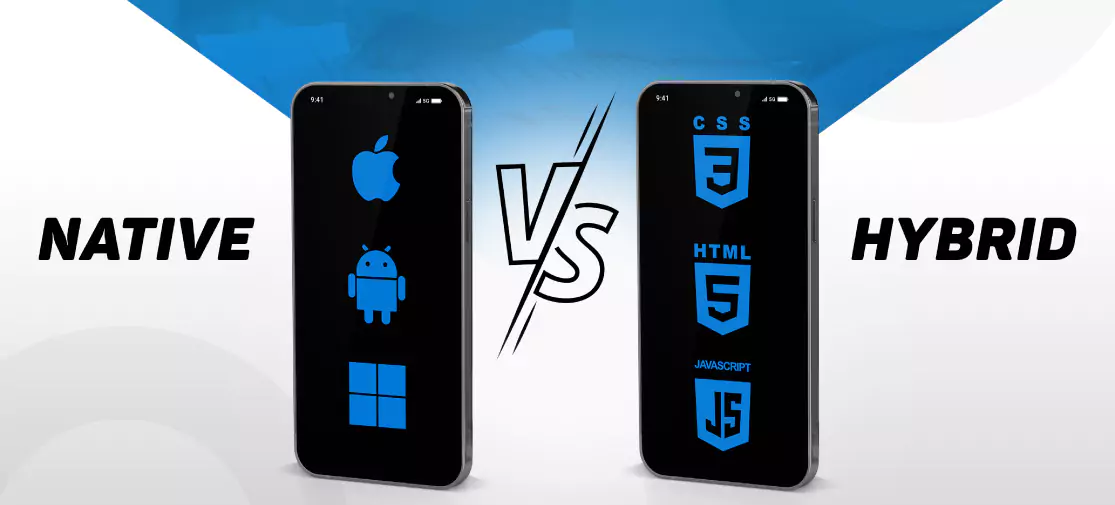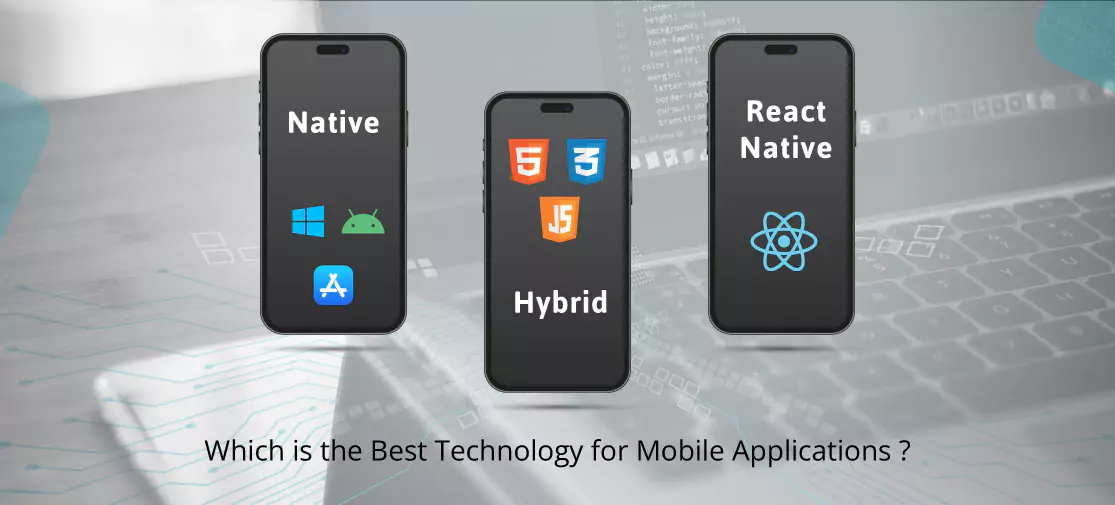Introduction
Mobile app development has been revolutionized by the emergence of cross-platform frameworks like React Native and platform-specific languages like Kotlin. Each of these technologies offers distinct advantages and caters to different development needs. In this epic showdown, we will explore the strengths and weaknesses of React Native and Kotlin to help you decide which one reigns supreme for your next mobile app project.React Native and Kotlin are two of the most popular technologies for building mobile apps. Both have their own strengths and weaknesses, so it's important to understand the differences before making a decision.In this blog post, we'll compare React Native and Kotlin in terms of their features, performance, community support, and learning curve. We'll also discuss the best use cases for each technology.
React native: the power of cross-platform development
Single codebase, multiple platforms
Harness the power of a single codebase to deploy your app on both Android and iOS platforms, saving time and development efforts.Easily reach a broader audience without compromising the app's performance and user experience.
Rich ecosystem
Leverage an extensive library of pre-built components and modules from the React Native community. Utilize third-party plugins and integrations to enhance functionality and streamline development.
Faster development cycles
Instantly see changes with hot reloading, speeding up the development process.Facilitate agile development and testing with live updates, leading to faster iteration and deployment.
Lower learning curve for web developers
JavaScript developers can swiftly transition to React Native, reducing the learning curve and increasing team efficiency. Reuse existing web development skills and code snippets, thereby accelerating the mobile app development process.
Kotlin: the android developer's dream
Native performance
- Kotlin's direct integration with Android Studio and native libraries allows developers to achieve optimal performance.
- Fine-tune app performance and memory management, providing users with a seamless experience.
Kotlin coroutines
- Simplify asynchronous programming with Kotlin Coroutines, ensuring clean and concise code.
- Overcome callback hell and promote a more structured and maintainable codebase.
Interoperability
- Seamlessly use existing Java code alongside Kotlin, making migration from Java to Kotlin a smooth process.
- Kotlin is 100% compatible with Java, enabling developers to leverage existing Java libraries.
Enhanced safety and readability
- Eliminate null pointer exceptions with Kotlin's nullable types and smart casts, improving the app's stability.
- Benefit from concise and expressive syntax, resulting in more readable and maintainable code.
When to choose react native
Rapid prototyping and MVP development
- React Native is perfect for quickly validating your app idea with minimal resources.
- Swiftly create Minimum Viable Products (MVPs) to gather user feedback and iterate on your concept.
Limited budget and time constraints
- For startups and small-to-medium businesses, React Native's cross-platform capabilities offer significant cost savings.
- Shorten time-to-market and allocate resources more efficiently by using a single codebase.Strong Web Development Team:
- If your development team is proficient in JavaScript and React, adopting React Native can enhance productivity and collaboration.
- Developers can easily switch between web and mobile development, promoting a versatile skill set.
When to choose kotlin
Android-only focus
- If your primary target is the Android platform, Kotlin's native performance and Android Studio integration are compelling reasons to choose it.
- Android-specific optimizations and tooling give you greater control over the app's performance and user experience.
Performance-critical apps
- For resource-intensive applications like games or complex simulations, Kotlin's ability to optimize performance at a lower level makes it the ideal choice.
- Leverage Kotlin's compatibility with native libraries and tools to deliver smooth and responsive user experiences.
Java legacy codebase
- If your app relies heavily on existing Java code, migrating to Kotlin will modernize your project while preserving backward compatibility.
- Kotlin's interoperability ensures a seamless transition and minimizes disruptions in the development process.
React native vs kotlin: which one is best?
Features
React Native and Kotlin both offer a wide range of features for building mobile apps. However, there are some key differences in their capabilities.
React native
- React Native uses JavaScript, which is a popular and well-known language. This makes it easy for developers to learn and use React Native.
- React Native is a declarative framework, which means that you can describe the UI of your app in terms of how it should look, rather than how it should be implemented. This makes it easier to write maintainable and reusable code.
- React Native is highly customizable. You can use native components to access the underlying platform APIs, or you can use custom components to create your own UI elements.
Kotlin
- Kotlin is a statically typed language, which means that the compiler can check for errors at compile time. This can help to prevent bugs and improve the performance of your app.
- Kotlin is interoperable with Java, which means that you can use existing Java libraries in your Kotlin code. This can save you time and effort when developing your app.
- Kotlin is a concise language, which means that you can write less code to achieve the same results. This can make your code easier to read and maintain.
Performance
React Native and Kotlin both offer good performance for mobile apps. However, there are some benchmarks that suggest that Kotlin may have a slight edge in terms of performance.
Community support
Both React Native and Kotlin have large and active communities of developers. This means that there are plenty of resources available to help you learn and use these technologies.
Learning curve
- The learning curve for React Native is relatively shallow. If you already know JavaScript, you'll be able to pick up React Native quickly.
- The learning curve for Kotlin is also relatively shallow. If you already know Java, you'll be able to pick up Kotlin quickly.
Best use cases
- React Native is a good choice for building mobile apps that need to be cross-platform. It's also a good choice for building apps that need to be developed quickly.
- Kotlin is a good choice for building mobile apps that need to be high-performance. It's also a good choice for building apps that need to be integrated with existing Java libraries.
Differences between react native and kotlin
Here is a table that summarizes the key differences between React Native and Kotlin:
| Feature | React Native | Kotlin |
|---|---|---|
| language | JavaScript | Kotlin |
| Type system | Dynamic | Static |
| Interoperability | with native APIs | with java |
| Performance | Good | Excellent |
| Community Support | Large and active | Large and active |
| Best use cases | Cross-platform apps, quick development | high-performance apps, integration with Java libraries |
Conclusion
Remember, it's not just about choosing the best technology but also about leveraging it in the most effective way to create innovative, high-quality mobile applications. Assess your project's needs carefully, consider your team's skills, and make an informed decision to ensure your app's success in the fiercely competitive mobile market.
React Native and Kotlin are both excellent technologies for building mobile apps. The best choice for you will depend on your specific needs and requirements.
If you're looking for a technology that is easy to learn and use, and that can be used to build cross-platform apps, then React Native is a good choice.
If you're looking for a technology that offers high performance and can be integrated with existing Java libraries, then Kotlin is a good choice.
For more details Let's Connect hello@techvoot.com




